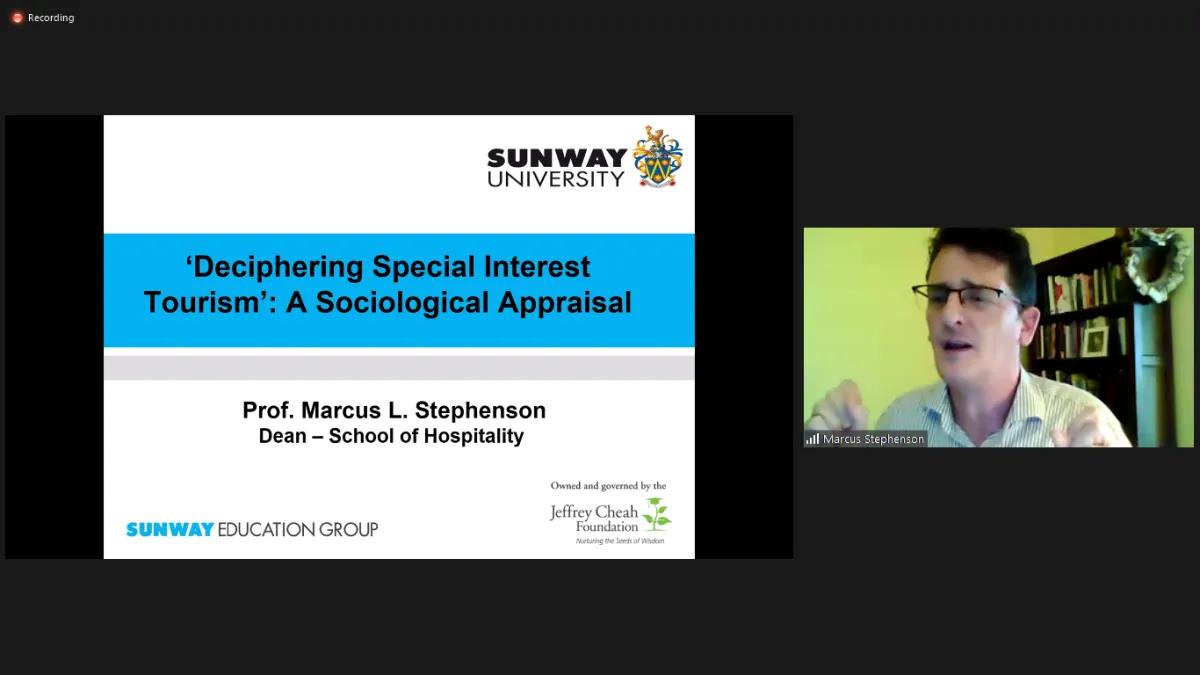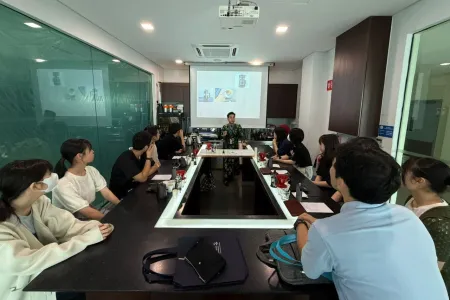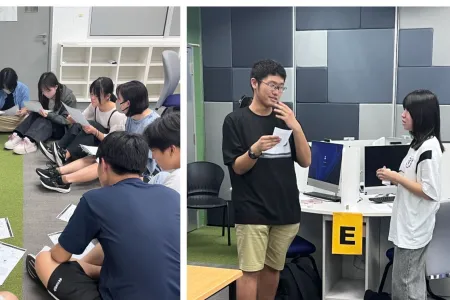Prof Marcus Stephenson presents on “Special Interest Tourism”
At a recent research seminar hosted by the Higher Degree by Research candidates (HDR) at the James Cook University Singapore, Prof Marcus Stephenson was invited to present his research entitled “Special interest tourism: A social scientific perspective”. Prof Stephenson mentioned the phrase “Special Interest Tourism” was popular from the 1990s, where people began to advance their specialised interests in specific forms of tourism. On the contrary, it is argued that special interest tourism is not a new phenomenon as it began even in the ancient Greek era.
One of the reasons that fuels the growth in special interest tourism is the fact that a leisure society has evolved. Work patterns have changed, and the working society possessed more disposable income to enable travel. Besides that, tourism localities have grown to become tourist-centric with better amenities and internet availability. With these, niche tourism demands have emerged. Professor Stephenson also added that “Urbexing”, a portmanteau of “urban” and “exploration”, is an example of special interest tourism, giving rise to interests in areas beyond the normalised “tourist gaze” and the “urban spectacle” - including a fascinating interest in sewers, factories, derelict schools and hospitals, disused underground stations, and rooftops.
He also mentioned that special interest tourism can be individually or collectively driven. As societies begin to value a sense of individualism and collective identity, travelling for specialised purposes could be a factor to elevate identities, pertaining to gender and ethnicity. Special interest tourism reflects neo-liberal sensibilities, such as an individual’s right to travel and the right to consume. On the other hand, there are forms of tourism which strengthen families or communities. Additionally, Prof Stephenson also highlighted that in Aitutaki, Cook Islands, there are communities which participate in family reunions to embrace the wider Cook Islands diaspora. Moving towards the post-COVID-19 era, it is argued that special interest tourism will be more value-added, especially as an economic slow-down could be a determining factor.






